In the ever-evolving landscape of trailer manufacturing, creating a superior product that stands out requires a blend of innovative design, robust materials, and meticulous craftsmanship. At CarMax Vehicle, we understand the intricacies involved in enhancing trailer performance and durability. This guide delves into the essential aspects of making a better Boy Trailer, offering actionable insights and industry-leading practices to elevate your trailer manufacturing game.
Understanding the Core Components of a Superior Trailer
To craft a better trailer, it’s imperative to dissect its fundamental components. Each element plays a pivotal role in ensuring the trailer’s functionality, safety, and longevity.
1. Frame Construction
The backbone of any trailer is its frame. A robust frame provides the necessary support and stability, crucial for handling varied terrains and heavy loads.
- Material Selection: Opt for high-strength steel alloys that offer exceptional durability and resistance to corrosion. Galvanized steel is a popular choice due to its longevity.
- Welding Techniques: Employ advanced welding methods such as MIG or TIG welding to ensure seamless joints and enhanced structural integrity.
- Design Optimization: Incorporate a design that distributes weight evenly, minimizing stress points and preventing deformation under load.
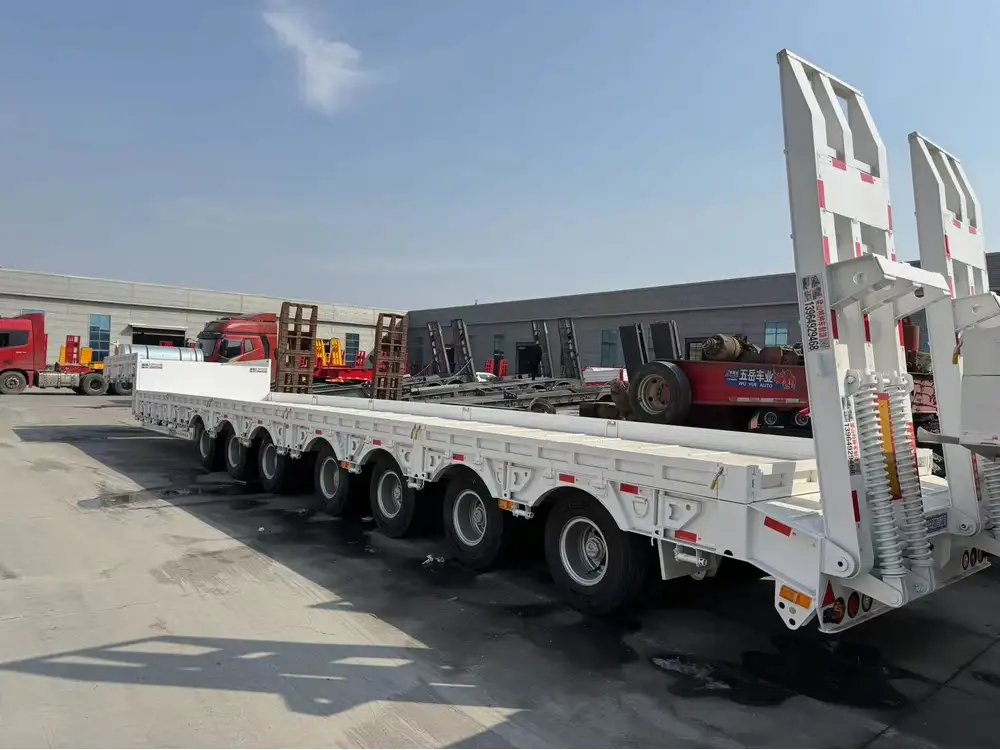
2. Axle Systems
Axles are critical for load distribution and overall vehicle stability. A superior axle system enhances towing capacity and maneuverability.
- Axle Types: Choose between single, tandem, or tridem axles based on the intended load and usage.
- Quality Bearings: Invest in high-grade bearings that reduce friction and extend the axle’s lifespan.
- Suspension Integration: Integrate adjustable suspension systems to accommodate varying load weights and improve ride quality.
3. Tires and Wheels
The choice of tires and wheels impacts traction, load-bearing capacity, and overall safety.
- Tire Specifications: Select tires with appropriate load ratings and tread patterns suited for the trailer’s primary use.
- Wheel Material: Opt for aluminum or steel wheels that offer strength without excessive weight.
- Maintenance Practices: Encourage regular tire pressure checks and rotations to maximize longevity and performance.
4. Lighting and Electrical Systems
Effective lighting and dependable electrical systems are paramount for safety and compliance with transportation regulations.
- LED Lighting: Utilize energy-efficient LED lights for enhanced visibility and reduced power consumption.
- Wiring Standards: Implement standardized wiring protocols to ensure reliable connections and ease of maintenance.
- Battery Systems: Incorporate robust battery solutions that can withstand varying weather conditions and provide consistent power.
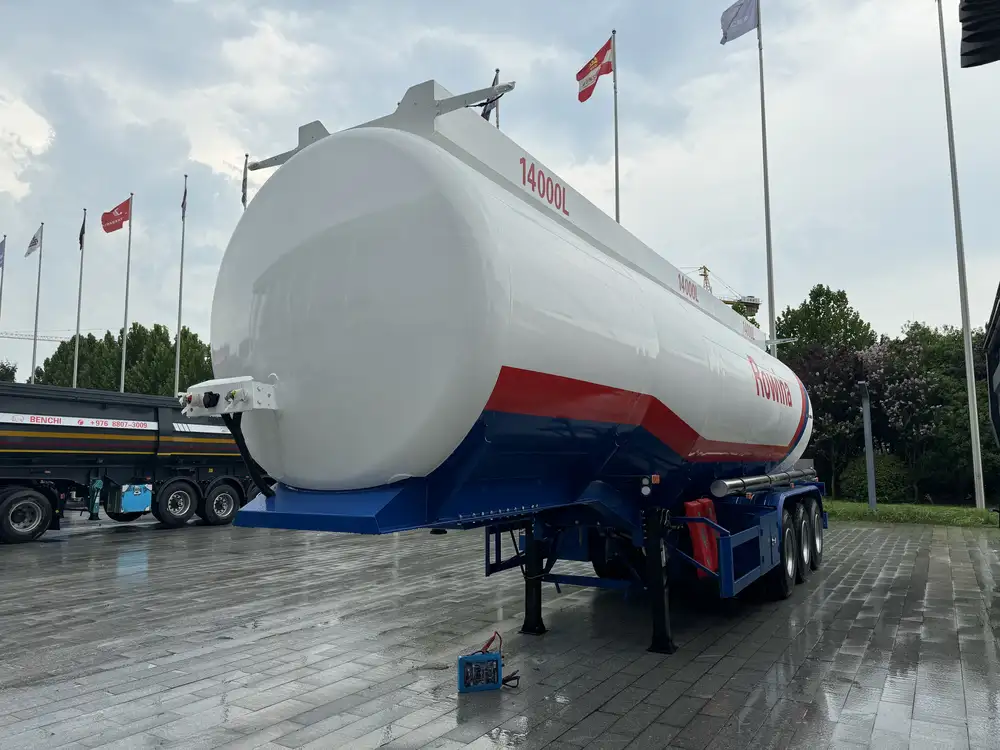
Enhancing Design for Superior Performance
Innovative design is a hallmark of high-end trailers. By focusing on aerodynamics, weight distribution, and user-friendly features, you can significantly improve trailer performance.
1. Aerodynamic Efficiency
Reducing air resistance not only improves fuel efficiency but also enhances towing stability.
- Streamlined Shapes: Design the trailer with smooth curves and minimal protrusions to minimize drag.
- Aerodynamic Accessories: Incorporate features like wind deflectors and fairings to further enhance airflow around the trailer.
2. Weight Distribution
Balanced weight distribution ensures smoother towing and reduces wear on both the trailer and the towing vehicle.
- Load Planning: Design compartments and storage spaces to facilitate even weight distribution.
- Attachment Points: Position hitch points and other attachments to maintain the trailer’s center of gravity.
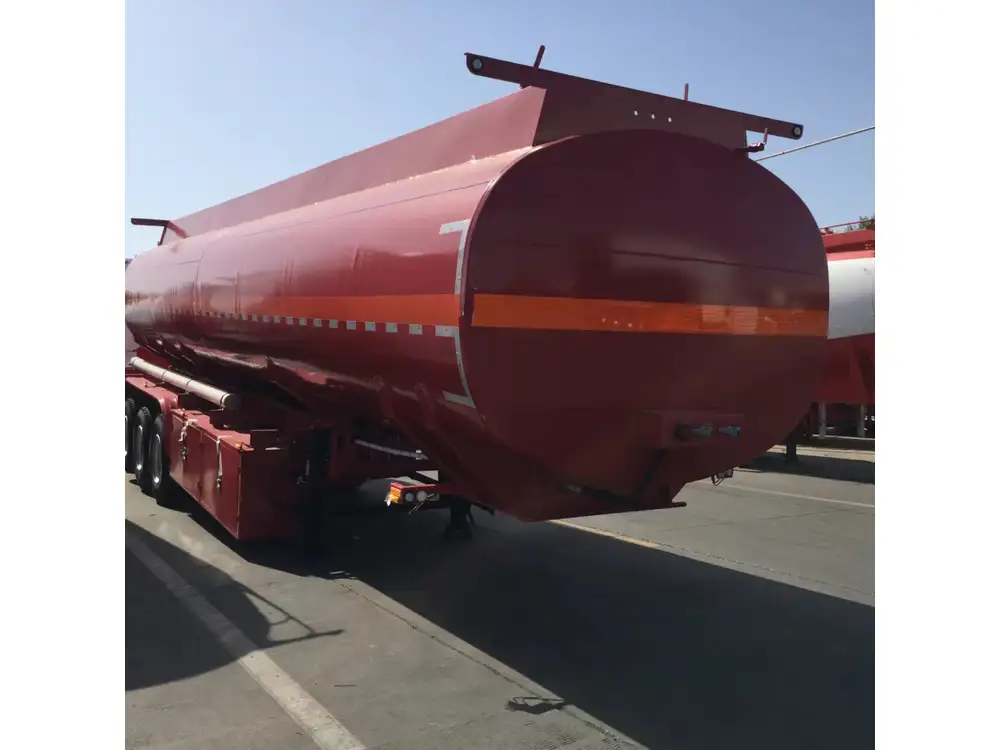
3. User-Friendly Features
Convenience features can significantly enhance the user experience, making your trailer more appealing to potential buyers.
- Modular Storage: Incorporate customizable storage solutions that cater to various needs.
- Easy Access: Design doors and compartments for effortless access and quick loading/unloading.
- Integrated Technology: Embed smart features such as GPS tracking, remote monitoring, and automated leveling systems.
Material Innovations for Durability and Sustainability
Leveraging advanced materials can boost the trailer’s durability while also addressing environmental concerns.
1. High-Strength Alloys
Utilizing high-strength alloys in critical components enhances the trailer’s load-bearing capacity and resistance to wear and tear.
- Steel Alloys: Opt for high-tensile steel alloys that offer superior strength without compromising on weight.
- Composite Materials: Explore the use of lightweight composites for non-structural elements to reduce overall weight and improve fuel efficiency.

2. Corrosion-Resistant Coatings
Protecting the trailer from corrosion extends its lifespan and maintains aesthetic appeal.
- Galvanization: Apply galvanization techniques to steel components to prevent rust and degradation.
- Powder Coating: Utilize powder coating for a durable, attractive finish that resists scratches and environmental damage.
3. Sustainable Practices
Adopting sustainable manufacturing practices not only benefits the environment but also aligns with the growing consumer demand for eco-friendly products.
- Recycled Materials: Incorporate recycled materials where possible to reduce waste and resource consumption.
- Energy-Efficient Manufacturing: Implement energy-efficient processes in production to minimize carbon footprint.
Advanced Manufacturing Techniques for Precision and Efficiency
Embracing cutting-edge manufacturing technologies ensures precision, reduces production time, and enhances overall quality.

1. Computer-Aided Design (CAD)
CAD software enables precise design and modeling, allowing for detailed planning and simulation.
- 3D Modeling: Create detailed 3D models to visualize components and assess design feasibility.
- Simulation Testing: Conduct virtual tests to identify and rectify potential design flaws before production.
2. Automation and Robotics
Integrating automation and robotics in the manufacturing process increases efficiency and consistency.
- Automated Welding: Utilize robotic welding systems for faster, more accurate welds.
- Material Handling: Implement automated material handling systems to streamline the production workflow.
3. Quality Control Systems
Robust quality control mechanisms ensure that each trailer meets the highest standards of excellence.
- Inspection Protocols: Establish comprehensive inspection protocols at each production stage.
- Feedback Loops: Implement feedback systems to continuously improve manufacturing processes based on quality data.

Customization and Personalization for Enhanced User Experience
Offering customizable options caters to diverse customer needs and preferences, setting your trailers apart in a competitive market.
1. Modular Designs
Design trailers with modular components that can be easily customized or upgraded based on user requirements.
- Interchangeable Parts: Provide interchangeable parts for easy replacement or upgrades.
- Expandable Features: Allow for expansion modules to increase capacity or add functionalities.
2. Aesthetic Personalization
Aesthetic customization enhances the visual appeal and allows customers to express their individuality.
- Color Options: Offer a wide range of color options and finishes.
- Personal Branding: Provide options for custom logos or branding elements.
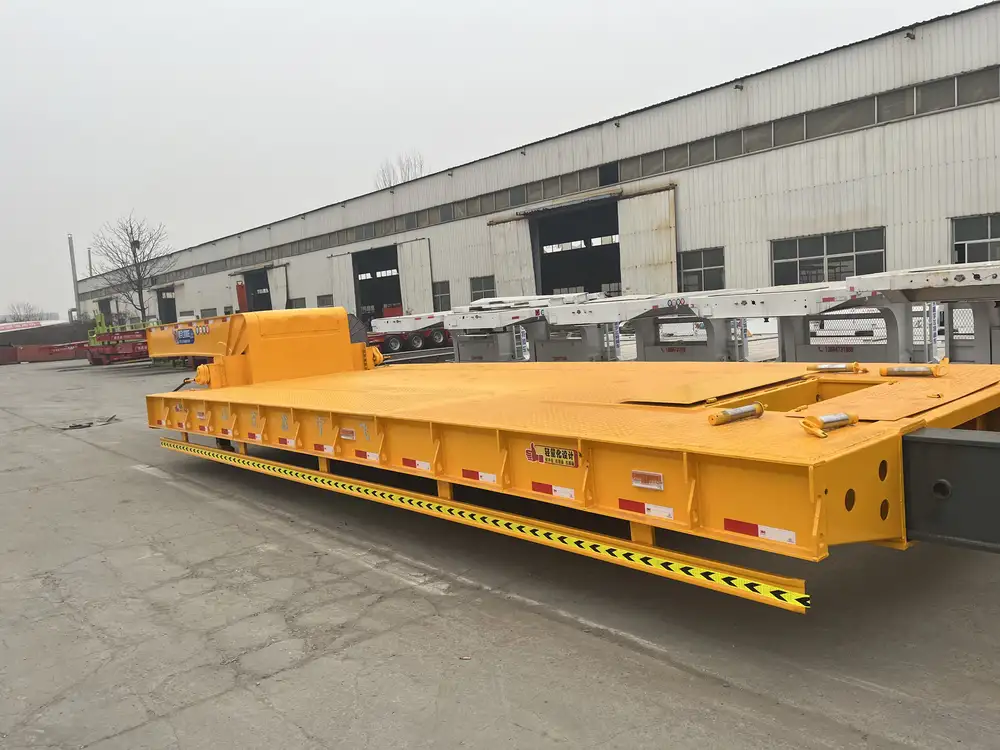
3. Functional Enhancements
Incorporate functional features that add value and improve the trailer’s usability.
- Smart Technology Integration: Embed smart technologies such as IoT devices for real-time monitoring and control.
- Ergonomic Designs: Focus on ergonomic aspects to make the trailer more user-friendly and comfortable to interact with.
Safety Enhancements for Peace of Mind
Safety should never be compromised. Implementing advanced safety features ensures the well-being of users and compliance with regulations.
1. Braking Systems
A reliable braking system is essential for safe towing and stopping.
- Electric Brakes: Utilize electric brake systems for precise control and effective stopping power.
- Brake Controllers: Install advanced brake controllers that allow for customizable braking responses.
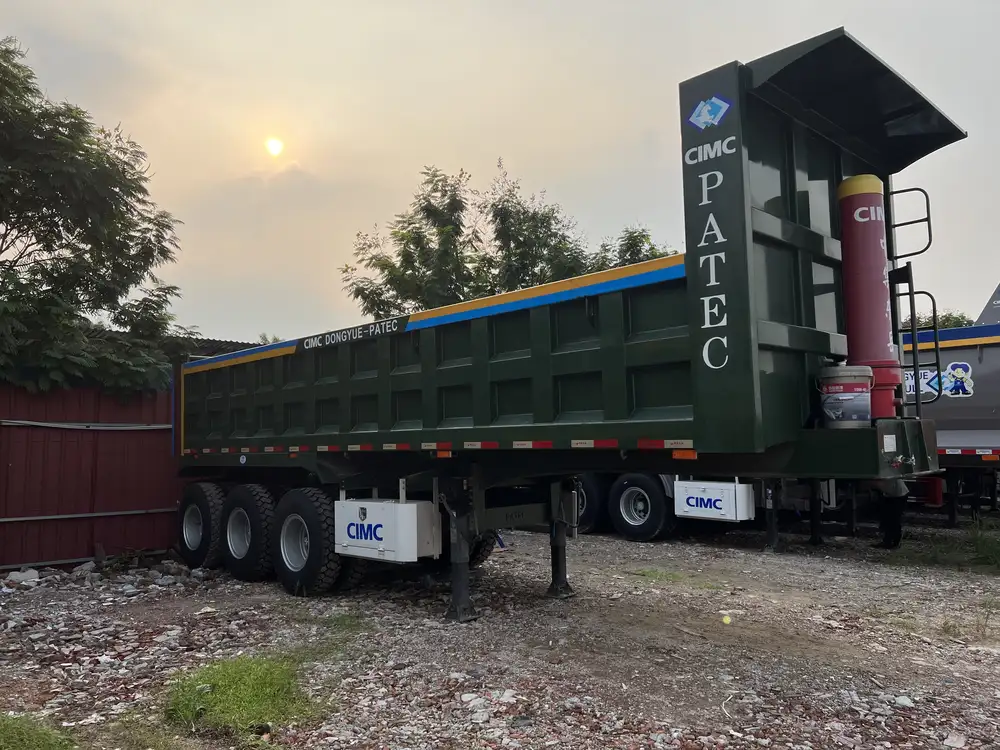
2. Lighting Systems
Comprehensive lighting systems improve visibility and safety during night-time or adverse weather conditions.
- LED Lights: Implement high-intensity LED lights for better visibility.
- Backup Lights: Ensure backup lights are bright and responsive for reversing and low-speed maneuvers.
3. Stability Enhancements
Stability features prevent swaying and enhance control during towing.
- Sway Control Devices: Incorporate sway control devices to minimize trailer sway.
- Stabilizer Jacks: Use stabilizer jacks to maintain trailer balance when parked.
Sustainable Practices for Long-Term Success
Embracing sustainability not only benefits the environment but also drives long-term business success by aligning with consumer values and regulatory trends.

1. Energy-Efficient Manufacturing
Implement energy-efficient practices in your manufacturing process to reduce environmental impact.
- Renewable Energy Sources: Utilize renewable energy sources such as solar or wind power in your production facilities.
- Energy-Efficient Equipment: Invest in energy-efficient machinery to lower energy consumption and operational costs.
2. Waste Reduction
Minimize waste generation through efficient material usage and recycling initiatives.
- Lean Manufacturing: Adopt lean manufacturing principles to optimize resource utilization and reduce waste.
- Recycling Programs: Establish recycling programs for scrap materials and by-products.
3. Eco-Friendly Materials
Select materials that are environmentally friendly and sustainable.
- Recycled Steel: Use recycled steel to reduce the need for raw material extraction.
- Biodegradable Components: Incorporate biodegradable materials for non-structural elements wherever possible.
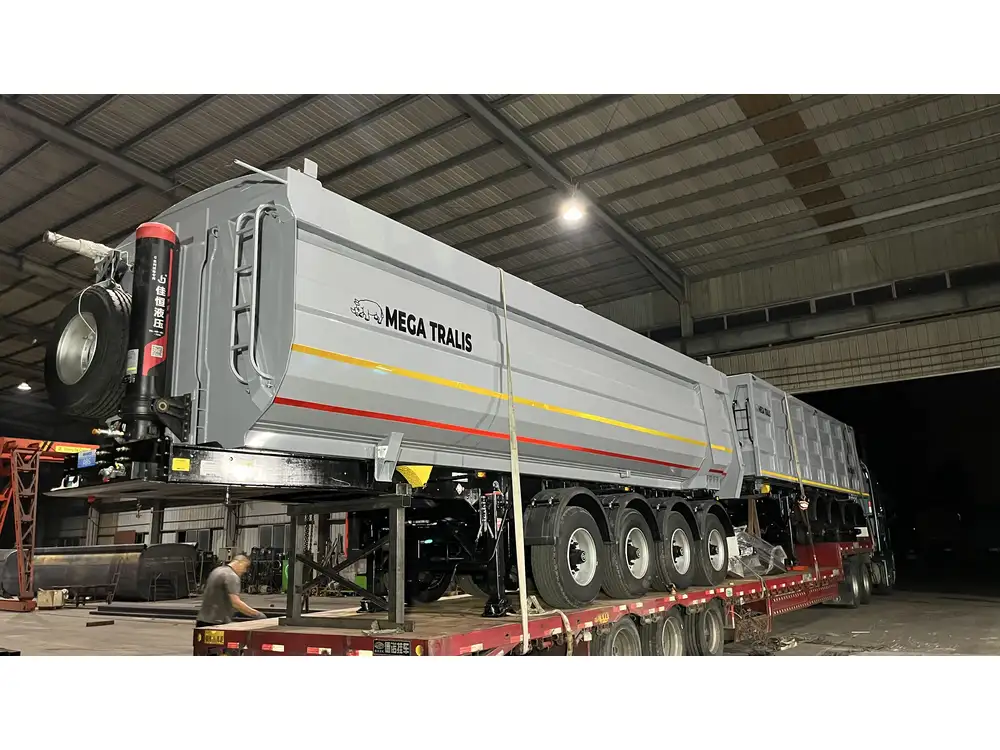
Leveraging Technology for Competitive Advantage
Harnessing the power of technology can provide a significant edge in the trailer manufacturing industry.
1. Internet of Things (IoT) Integration
Integrate IoT technologies to offer smart trailers with enhanced functionalities.
- Real-Time Monitoring: Enable real-time monitoring of trailer conditions such as load weight, tire pressure, and temperature.
- Remote Control: Provide remote control features for locking/unlocking, lighting, and other functionalities.
2. Data Analytics
Utilize data analytics to gain insights into manufacturing processes and customer behavior.
- Predictive Maintenance: Analyze data to predict maintenance needs and prevent potential failures.
- Customer Preferences: Use analytics to understand customer preferences and tailor products accordingly.

3. Artificial Intelligence (AI) and Machine Learning
Incorporate AI and machine learning to optimize manufacturing processes and improve product quality.
- Quality Assurance: Implement AI-driven quality assurance systems to detect defects and ensure consistency.
- Process Optimization: Use machine learning algorithms to optimize production workflows and reduce inefficiencies.
Building a Strong Brand with Quality and Trust
Establishing a reputable brand is crucial for long-term success in the trailer manufacturing industry.
1. Consistent Quality Standards
Maintain unwavering commitment to quality in every aspect of production.
- ISO Certification: Obtain ISO certifications to demonstrate adherence to international quality standards.
- Continuous Improvement: Foster a culture of continuous improvement to consistently enhance product quality.

2. Customer-Centric Approach
Prioritize customer satisfaction by understanding and addressing their needs effectively.
- Responsive Support: Provide responsive and knowledgeable customer support to assist with inquiries and issues.
- After-Sales Service: Offer comprehensive after-sales services, including maintenance, repairs, and part replacements.
3. Transparent Communication
Ensure transparent communication with customers to build trust and loyalty.
- Clear Documentation: Provide detailed product documentation, including specifications, manuals, and warranties.
- Honest Marketing: Practice honest marketing by accurately representing product capabilities and features.
Marketing Strategies to Outrank Competitors
Effective marketing strategies are essential to position your trailers as the preferred choice in the market.
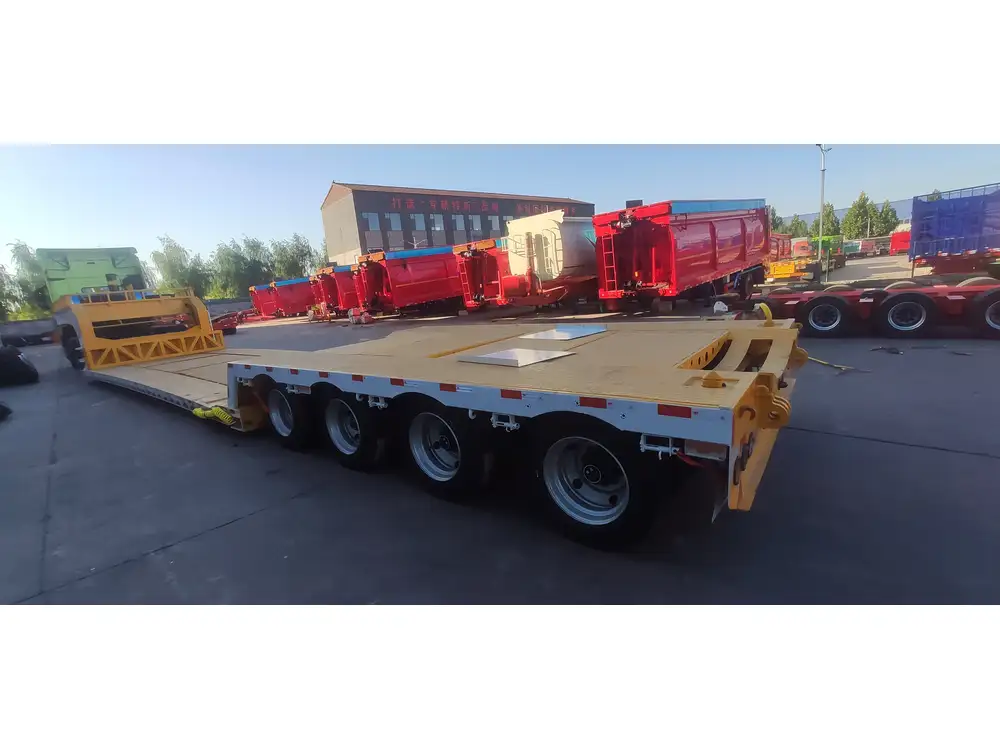
1. Search Engine Optimization (SEO)
Optimize your online presence to enhance visibility and drive organic traffic.
- Keyword Optimization: Incorporate relevant keywords such as “better Boy Trailer” and “high-quality semi-trailers” strategically throughout your content.
- Content Marketing: Develop valuable content that addresses customer pain points and showcases your expertise.
- Backlink Building: Acquire high-quality backlinks from reputable sources to improve domain authority.
2. Social Media Engagement
Leverage social media platforms to engage with your audience and build a community around your brand.
- Consistent Posting: Maintain a consistent posting schedule with engaging content that highlights your trailers’ features and benefits.
- Customer Interaction: Encourage and respond to customer interactions to foster a sense of community and loyalty.
- Influencer Partnerships: Collaborate with industry influencers to expand your reach and credibility.
3. Email Marketing Campaigns
Implement targeted email marketing campaigns to nurture leads and convert them into customers.
- Personalized Content: Send personalized content tailored to the recipient’s interests and needs.
- Automated Workflows: Utilize automated workflows to deliver timely and relevant messages based on user behavior.
- Performance Tracking: Monitor and analyze campaign performance to refine strategies and improve results.
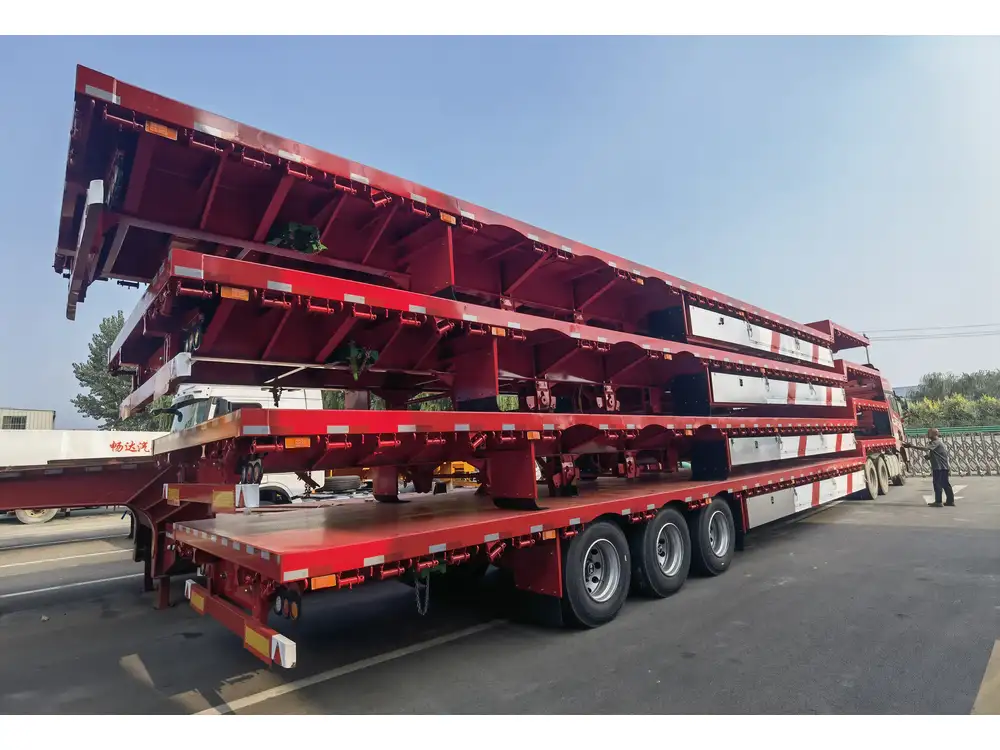
Investing in Research and Development
Continuous investment in research and development (R&D) ensures your trailers remain at the forefront of innovation.
1. Product Innovation
Focus on developing new features and improvements that set your trailers apart from the competition.
- User Feedback: Gather and analyze user feedback to identify areas for improvement and innovation.
- Prototyping: Develop prototypes to test new ideas and validate their feasibility before full-scale production.
2. Industry Collaboration
Collaborate with industry experts and organizations to stay updated on the latest trends and advancements.
- Partnerships: Form strategic partnerships with suppliers, technology providers, and research institutions.
- Trade Shows and Conferences: Participate in industry trade shows and conferences to showcase your innovations and gain insights from peers.
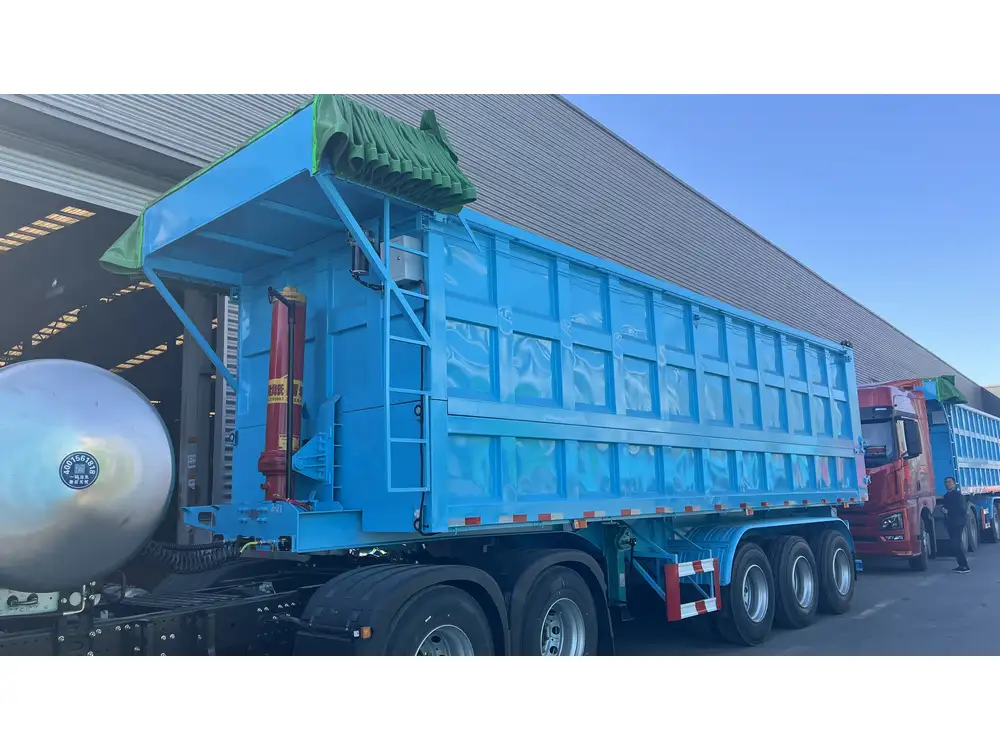
3. Sustainable Innovation
Prioritize sustainable innovations that contribute to environmental preservation and regulatory compliance.
- Green Technologies: Integrate green technologies that reduce environmental impact, such as solar-powered lighting systems.
- Eco-Friendly Designs: Design trailers with sustainability in mind, focusing on energy efficiency and minimal waste production.
Ensuring Compliance with Industry Standards
Adhering to industry standards and regulations is crucial for ensuring safety, reliability, and market acceptance.
1. Regulatory Compliance
Ensure that your trailers comply with all relevant local, national, and international regulations.
- Safety Standards: Adhere to safety standards related to braking systems, lighting, and structural integrity.
- Environmental Regulations: Comply with environmental regulations concerning emissions, materials, and manufacturing processes.

2. Certification and Testing
Obtain necessary certifications and conduct thorough testing to validate product performance and safety.
- Third-Party Testing: Utilize third-party testing facilities to conduct rigorous assessments of your trailers.
- Certification Programs: Enroll in certification programs to demonstrate compliance with industry standards.
3. Documentation and Record-Keeping
Maintain comprehensive documentation and records to support compliance and facilitate auditing processes.
- Detailed Records: Keep detailed records of manufacturing processes, quality control measures, and testing results.
- Accessible Documentation: Ensure that all documentation is easily accessible for review and verification purposes.
Enhancing After-Sales Support and Services
Providing exceptional after-sales support reinforces customer trust and encourages repeat business.

1. Maintenance Services
Offer comprehensive maintenance services to ensure the longevity and optimal performance of your trailers.
- Scheduled Maintenance: Provide scheduled maintenance plans that cover essential services such as inspections, repairs, and part replacements.
- On-Demand Services: Offer on-demand maintenance services for urgent repairs and troubleshooting.
2. Warranty Programs
Implement robust warranty programs that guarantee product quality and provide peace of mind to customers.
- Extended Warranties: Offer extended warranty options to cater to different customer needs and preferences.
- Clear Terms: Clearly communicate warranty terms and conditions to avoid misunderstandings and disputes.
3. Customer Training and Education
Empower customers with the knowledge and skills to effectively use and maintain their trailers.
- User Manuals: Provide detailed user manuals that cover installation, operation, and maintenance procedures.
- Training Programs: Conduct training programs and workshops to educate customers on best practices and safety measures.

Case Studies: CarMax Trailer’s Success Stories
1. Enhanced Load Capacity for Commercial Use
A commercial fleet operator sought trailers with higher load capacity and improved durability. CarMax Trailer provided customized solutions with reinforced frames and advanced axle systems, resulting in a 20% increase in load capacity and a significant reduction in maintenance costs.
2. Innovative Design for Recreational Use
Outdoor enthusiasts required trailers with enhanced maneuverability and user-friendly features. CarMax Vehicle developed streamlined designs with modular storage and integrated smart technologies, leading to increased customer satisfaction and market share.

3. Sustainable Practices for Eco-Conscious Clients
A logistics company committed to sustainability partnered with CarMax Trailer to incorporate eco-friendly materials and energy-efficient manufacturing processes. This collaboration not only reduced their carbon footprint but also enhanced their brand reputation among environmentally conscious consumers.
Conclusion
Creating a better Boy Trailer involves a holistic approach that encompasses robust frame construction, advanced axle systems, superior materials, innovative design, and unwavering commitment to quality and sustainability. At CarMax Vehicle, we are dedicated to pushing the boundaries of trailer manufacturing, ensuring our products meet the highest standards of performance, safety, and customer satisfaction. By implementing the strategies and insights outlined in this guide, you can elevate your trailer offerings and achieve a competitive edge in the market.
Frequently Asked Questions
1. What materials are best for constructing a durable trailer frame?
High-strength steel alloys, particularly galvanized steel, are ideal for constructing durable trailer frames due to their exceptional strength and corrosion resistance.
2. How can I improve the aerodynamics of my trailer?
Streamlining the trailer’s shape, minimizing protrusions, and adding aerodynamic accessories like wind deflectors and fairings can significantly enhance its aerodynamic efficiency.
3. What maintenance practices are essential for extending trailer lifespan?
Regular tire pressure checks, timely oil changes, routine inspections of welding joints and axles, and keeping the trailer clean and protected from the elements are crucial for extending its lifespan.
4. How does CarMax Trailer incorporate sustainability into its manufacturing process?
CarMax Trailer uses recycled materials, implements energy-efficient manufacturing practices, and adopts eco-friendly coatings and designs to minimize environmental impact.
5. What customization options does CarMax Vehicle offer for its trailers?
CarMax Vehicle offers modular storage solutions, a variety of color and finish options, custom branding opportunities, and integration of smart technologies to cater to diverse customer needs.



